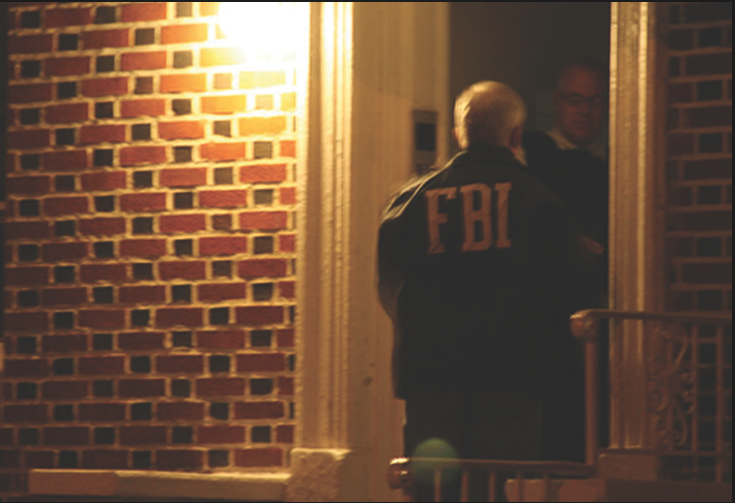Search and Seizure Law Under the 4th Amendment
Unless a valid exception applies, a search without a warrant is illegal under the 4th Amendment. Evidence seized illegally is subject to suppression and is inadmissible in court.

Illegal Searches are more common than you think.
Many people who meet with the attorneys at LEWIS & DICKSTEIN, P.L.L.C. on new felony or misdemeanor cases think that if they have been searched and the police did not have a warrant – any evidence found during the search is going to get thrown out or suppressed pursuant to a motion. This is sometimes the case, but there are several search warrant exceptions. The defense team at LEWIS & DICKSTEIN, P.L.L.C. can help you understand when evidence should be thrown out or a motion to suppress should be filed. These exceptions are set forth below.
Search Warrant Exceptions
Consent Searches
“Consent” seems pretty obvious, but many people still have reason to question searches supposedly done based on “consent.” If an officer stops you in the car and asks if they can look around, and you consent to the search, you may have waived your 4th amendment rights. There may be circumstances when an officer is coercive or doesn’t leave a person the reasonable ability to do anything other than consent. In these cases, a Motion to Suppress Evidence motion might be appropriate.
Your consent must be free and voluntary, without a threat of force, violence, or threat of other harm. However, a warrantless search may still be justified by consent if someone who is a common or joint authority over the property consents to the search. Examples of this type of third-party consent include a landlord to common areas of a building, a tenant against a landlord, an employer concerning an employee’s desk, a husband or wife against each other, a co-occupant against another, and a person to whom you lend.
Search Incident to Arrest
If police officers make a lawful arrest, they may search the suspect. The search extends to the whole body and the immediate area where an arrestee might possess a weapon. Persons in the vicinity may also be searched if the officers have a reasonable, objective reason to believe they may present a danger or destroy evidence.
Inventory Searches
If someone is arrested, a second search will likely occur during the booking process. This search may be “to protect your property.” The officers will be looking for evidence of other crimes as well. The “official” purpose of the inventory search is to protect the officers against unwarranted claims of lost or stolen property and protect the police from potential dangers. The ironic twist to this purpose is that the search is to protect the officers, and the officers are the ones who are doing the search and inventory. Many of our clients have indicated that some valuables have disappeared during this process and failed to appear on the inventory. This rule also applies to impounded and seized motor vehicles. This may include closed containers that would ordinarily not be subject to search if the police cannot ascertain their contents.
More Search Warrant Exceptions
Exigent Circumstances
This search warrant exception allows officers to search based on probable cause and exigent circumstances that create a compelling need for immediate action due to danger to life or public safety. Exigent circumstances mean emergency circumstances. Exigent circumstances may also justify a search when officers are in hot pursuit of a suspect and there is reasonable cause to arrest. An example of a common warrantless search results from a 911 call in which an alleged victim alleges domestic violence. If the police arrive and are not granted entry, there is a high likelihood that the officers will force entry to check on the occupant’s health and welfare. A second example would be when officers respond to a call for help and see a nonresponsive person through the window. Entry without a warrant would be proper under these circumstances.
Automobile Exception
This exception to the warrant requirement is vast, and courts continue to expand it at the expense of everyone’s constitutional rights. The courts have expanded this exception so that many other exceptions are no longer needed. Because an automobile is mobile, driven on a public roadway with occupants and contents available for public view, an exception has been created for vehicles in transit. There must be probable cause to believe the car contains evidence or contraband or that the car’s occupants are engaged in criminal behavior. The automobile exception does not apply to a vehicle in the garage of a house under surveillance or a car mounted on blocks incapable of movement.
Plain View Exception to the Search Warrant Requirement
This search warrant exception may seem too obvious, but it frequently comes up in court. Officers may search and seize objects in plain view when they have probable cause to believe that the item is evidence of a crime, contraband, or otherwise subject to seizure. The baseline requirement is that the officers must be in a place where they have a right to be when they observe the object believed to be evidence of a crime. Subdivisions of this exception are the plain touch and smell exceptions. For example, if an officer does a pat-down search by feeling the outside of a person’s pants for weapons and feels what is seemingly a pistol, the officer can go into the subject’s pocket and retrieve the evidence.
Administrative Searches
An administrative search differs in nature and purpose from criminal searches. They are different because the individuals conducting the search do so for the public interest and not to search for evidence of a crime. These searches are generally justified based on public safety. These searches result from issues with fire codes, health, safety and housing codes, and licensing provisions. The object is not to arrest the person whose property is searched (although that could happen). An example would be a search upon entry into a courthouse.
“How would I know if a search is legal or if evidence should be dismissed, expunged, or suppressed?”
You probably wouldn’t know. Determining whether a search violates the 4th Amendment to the United States Constitution is highly complex and often requires a thorough analysis of federal and state laws and cases. Hiring a great criminal defense lawyer doesn’t guarantee that evidence against you will be suppressed, but it will give you the best chance. If a judge finds that a search was illegal, any evidence found or discovered due to the unlawful search must be suppressed, no matter how incriminating.
Moral of the Search Warrant Exceptions Story
The mistake made by most people being investigated is that they think cooperation gives them a better chance of not being arrested or charged. This is not the case. Never make a statement to the police without the presence and advice of a top criminal defense attorney, and never consent to a search. Refusing to make a statement does not mean you should not be respectful or courteous, but you should not give a statement or consent to any search of your person or property. Standing up for your constitutional rights may be suspicious, but voluntarily handing over evidence or making an incriminating statement is worse.

Help for Those Charged with Misdemeanor or Felony Crimes
LEWIS & DICKSTEIN, P.L.L.C. is the premier criminal defense law firm. Call us for a free consultation if you are charged with a criminal offense or under investigation and would like a free consultation with a highly experienced, successful criminal attorney. We will take the time to talk with you, answer your questions, and address your concerns. If there is a way to get your charges dismissed or reduced, we will do whatever it takes to make that happen.
Call us today at (248) 263-6800 for a free consultation or complete an online Request for Assistance Form. We will contact you promptly and find a way to help you.














